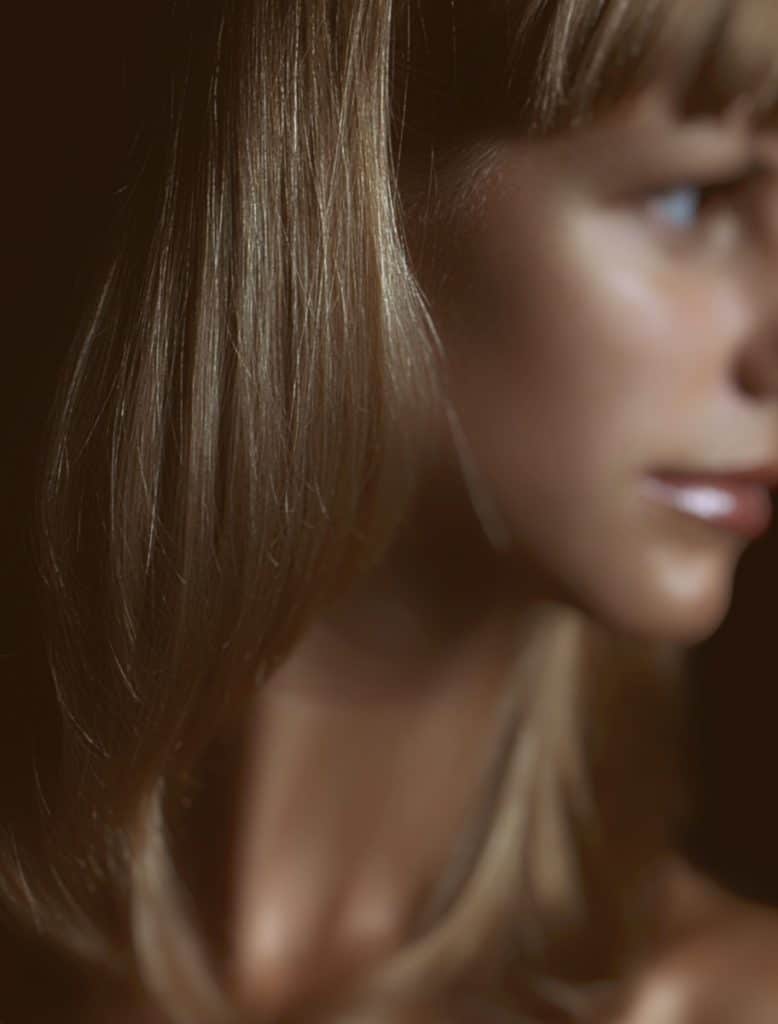[toc]
Hair comes in all colors, styles, and makes. It can be thin, thick, straight, curly, dry, and oily. The trouble with oily hair is that it is associated with greasy hair. Grease has a bad reputation and is associated with unclean and unhealthy hair. Oils in your hair are actually a good thing. They protect and moisturize your hair.
When you have naturally oily hair, you want to keep these oils around, even if they seem to take over. You may have to wash your hair more often than someone with dry hair, but you do not want to over-do it. Over-washing oily hair causes more oil production. We can help you figure out the best way to wash your oily hair so you don’t do more damage than good.
How Often Should You Wash Oily Hair?
Oily hair is not as bad as most people think. Your hair naturally produces oils known as sebum. This sebum is essential for healthy hair. Without these natural oils, your hair can feel dry and coarse.
The trouble is that most people think oily hair is unhealthy. It is associated with poor hygiene which results in people washing too often. Too much washing can lead to dry and damaged hair. The truth is that most people do not need to wash their hair every day.

How often you wash your hair depends on several factors.
Oil
Some people have naturally oily hair and it is oilier than others. The amount of oil in your hair also depends on genetics, age, and the environment. Too much oil can cause your hair to become lifeless but it can also seem unclean. For those that produce a lot of hair sebum or oil naturally, washing your every day is acceptable. For the most part, people only produce enough oil to have them wash their hair every couple of days.
Hair Type
Straight and thin hair needs to be washed more frequently. The reason is that the oils from the hair make straight or thin hair look greasier. These oils do not coat curly strands as easily so it looks drier. African-American hair is coarse and needs the least amount of washing. Textured and tight curls should only be washed once a week as there will be very little oil to build up.
Sweat
The amount you sweat impacts how often you need to wash. Sweat spreads your hair’s natural oils which makes hair feel dirty. It also invites bacteria to settle on your scalp which can cause unpleasant odors. If you workout everyday, you may need to wash more often than those who do not.
Dirt
Dirt from the environment and pollen can get trapped in your hair. This can make hair look dull and greasy. If you work outdoors, garden, or clean frequently, you will end up with greasier hair. If you have naturally oily hair, this can be a problem. Wearing a wrap as you perform these tasks can reduce the amount of debris in your hair and cut back on the grease.
Products
The more hair products you use, the more build up you will get on your scalp. Build up attracts bacteria and oils, leaving your hair greasy and smelly. The products are designed to make your hair look better, but only when used in moderation. Skip the creams and sprays and you will be able to skip more washes, leaving your hair in better condition.
With oily hair, the biggest challenge is not over-washing. It can be tempting to wash your hair more often than you need to. This is not good for your hair as it removes the natural oils your hair needs. Washing two times a week is good for oily hair. After you follow this pattern the oil balances out and you will notice less greasy hair. Allow time for the natural oils to work. Continually washing them out only makes the body produce more.
Those with oily hair can also try different shampooing approaches. Dry shampoo is a great way to cover up greasy looks without creating more oils. This is ideal as you start to change your washing routine. When applied at the roots, dry shampoo absorbs excess sebum. Use this between washes to keep your oily hair looking good.
You can also wash your hair with hot water only. Just like your ancestors, use a brush and hot water. The brush will pull grease and build up away from the scalp and hot water washes it away. This method does not remove the natural oils produced by your hair. So they can continue to protect and moisturize your hair.
When it comes to oily hair, everyone is still different. There is no one approach that will work for everyone. How often you wash will depend on your style, body, and preferences. Remember that the dirtier you and your hair get, the more you will want to wash. If you think you are over-washing, try to cut down. Try twice a week to stay with them and move to three times a week if you need to. Even with oily hair more than two or three times a week will be too much.

Is It Bad to Wash Oily Hair Everyday?
Yes, washing your hair every day strips the hair of its natural oils. These oils provide moisture and protection to your hair, so you want them to stay. Over time they can build-up causing a greasy look, and this is when you will wash your hair. Once a week or maybe twice is all you need to keep your hair clean and healthy. Only a small population need to wash daily and this includes those with very fine hair, those living in humid climates, and those who sweat a lot.
How Do I Keep My Hair from Getting Greasy?
One way to keep that greasy look to a minimum is to only apply conditioner to the ends of your hair. If you have naturally oily hair, you do not need to condition the roots. Don’t give up the conditioner completely, because this will cause dry and frizzy hair. After shampooing, apply conditioner about half way down your hair and cover all the way to the tips. Make sure you completely rinse the conditioner out when done. It is also recommended to use cool water. Hot water stimulates the scalp to produce more sebum, so using cooler water will reduce greasiness.
Does Washing Hair Everyday Make It Greasy?
Washing removes the grease from your hair, but washing every day can also cause a greasy look. Shampoo strips your hair of the natural oils it needs. When you wash every day, your scalp produces excess sebum to make up for the loss. This results in overly greasy hair. Yes, you wash it to cleanse the grease, but no, it doesn’t help. You want to minimize how often you wash your hair and not wash any more than two or three times a week.
Why is My Hair So Greasy After One Day?
Some people naturally have oily hair because their body produces more sebum. It could also be greasy after washing because you are washing it too often. When you wash every day, your scalp over produces oils giving a greasy look. Even after you wash. Using dry shampoo can help you prevent a greasy look in those with naturally oily hair. This will only hide the grease though and does not prevent it.
How Do I Stop My Hair from Going Greasy Overnight?
If you have naturally oily hair, there are things you can do to prevent it from getting greasy overnight. Dry shampoos that are designed to reduce oil production while still keeping your hair moisturized. Use a detangling spray instead of a conditioner. These sprays provide the small smooth look without over moisturizing the hair. Sleep with your hair up. Use a wrap or tie it into a very loose knot. This keeps your roots from spreading through your strands.
Will Washing Hair with Just Water Get Rid of Grease?
Washing your hair with water only has been around for centuries. Your ancestors only used water. Using a brush and hot water is an effective way to remove grease without shampoo. The brush breaks up the grease and moves it away from the scalp. Hot water washes it all away. You can clean your hair without stripping it of the natural oils that keep it hydrated. This may not work if you have thin hair.
What Causes Greasy Hair Suddenly?
If you notice that your hair is suddenly more greasy than it used to be, there could be several reasons for this. Recent dietary changes can impact your hair if nutrient levels have changed. Doing more exercise is also going to change the oil levels in your hair as a result of sweating more.
Hormonal changes associated with puberty, pregnancy, and menopause can also impact hair. Men can also experience greasier hair as a result of hormone changes, specifically too much DHT. If you are guilty of regularly touching your hair, this also increases greasiness. This moves the oils through your hair and from one side to another, spreading oils. If you are frequently tempted to touch your hair, keep it tied back away from your face.
Why is My Hair So Oily Even After I Wash It?
Your hair can end up overly oily when you wash it too little or too often. Those with oily hair should be washing at least every other day. Any more than this will cause your glands to produce excess oil to make up for the loss. Choosing a shampoo made for oily hair will reduce this.
What is Greasy Hair a Sign Of?
Having greasy hair can indicate several things. You may have naturally oily hair or there are some things in your life that need to change. Your pillow collects oils and dirt. This can transfer to your face as well as your hair. This can cause you to wake up with greasy hair. Change your pillow frequently or keep it regularly cleaned to avoid this.
Stress increases cortisol which is a hormone that increases oil production in your scalp. If you are overly stressed you will notice more oily hair. Try calming your stress with some meditation and yoga.
Greasy hair also can indicate that you are conditioning your hair too close to your scalp. If your hair is naturally oily, you do not need to apply conditioner to the scalp. This will create greasiness. Instead, apply conditioner from half way down the hair to the tips.
What Hormone Causes Greasy Hair?
Sebum is the natural oil produced by glands to moisturize and protect your hair. It comes from the sebaceous gland. Hormones associated with puberty, pregnancy, and menopause interfere with sebum production. This can lead to excess oil on the face and scalp, which leads to greasy hair. The stress hormone cortisol also increases sebum production and can cause overly greasy hair.
Oily hair will produce sebum more often than regular or dry hair. This means it will need to be washed more often. However, you do not want to over wash the hair because these natural oils are beneficial for hair growth and strength. You do not want to wash your hair more than twice or three times a week if you have oily hair.
Choose shampoos that are designed for oily hair and you can wash it less often. Do not condition the roots with every wash, since it moisturizes itself naturally. With these tips you can maintain shiny and beautiful hair without looking greasy. Oily hair does not have to mean greasy hair.


Leave a Reply